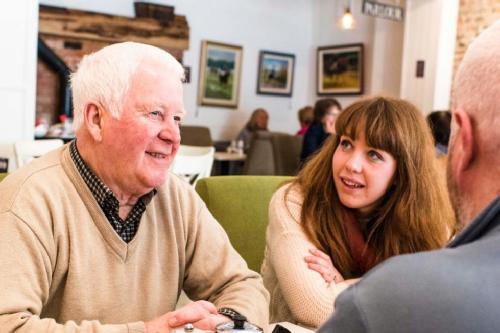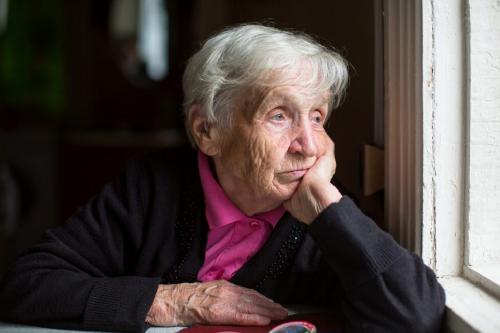
What is Alzheimer's and How to Help People with It
Alzheimer's disease is a type of dementia that leads to memory, thinking, and behavior problems. It is the most common form of dementia, accounting for 60-80 percent of all cases. It is also the sixth leading cause of death in the United States.
Alzheimer's disease worsens over time and eventually reaches a point where a person can no longer accomplish daily tasks. In the beginning, memory problems are mild, but as the disease progresses, patients become unaware of their environment and may no longer be able to carry on a conversation. Once their symptoms become noticeable, Alzheimer's patients typically live an average of eight years, but can survive for as many as 20 years-depending on other health factors. Although those ages 65 and older are more likely to develop Alzheimer's disease, thousands of others under the age of 65 have early-onset Alzheimer's.
Is there a Cure for Alzheimer's Disease?
There are no drugs or treatments to cure Alzheimer's disease, but there are treatments that can slow down its progression. Researchers are constantly looking for new treatments as they search for a cure for this mind-robbing disease.
Alzheimer's Disease Symptoms
Part of Alzheimer's disease awareness is knowing the symptoms so you can know whether a loved one may be developing it. Symptoms include:
- Memory Loss - People may forget things they've learned, dates, and events. They may also ask for the same information over and over again.
- Trouble Planning or Solving Problems - You may notice a loved one taking longer to complete tasks they used to be able to do much quicker. You may also notice they have trouble following directions, even a simple recipe becomes complex.
- Confusion with Time or Place - People with Alzheimer's often lose track of time. They also forget where they are and even how they got there.
- Misplacing Things & Unable to Retrace Steps - People who forget dates and events may also start to misplace objects. Although they would be able to retrace their steps in the past and find what they are looking for, that is no longer the case. This may lead them to accuse others of stealing because they can no longer find what's theirs.
- Mood & Personality Changes - Because of the changes that are going on in their mind, you may notice major shifts in mood and personality. They may become confused, suspicious, and even depressed.
Helping People with Alzheimer's Disease
Although there is no cure for Alzheimer's disease, there are things you can do to help a loved one, especially if the disease is still in its early stages.
- Keep a Daily Routine - This helps to avoid confusion and lets the person know what can be expected. Alzheimer's patients like routines.
- Don't Overstimulate - Keep things simple. Say one thing at a time. Present only one idea so that the person can understand it the best they can.
- Be Reassuring - Always try to make the person feel safe and comfortable. Sometimes even saying "You are safe with me" is enough to make the person feel at ease.
- Don't Yell or Argue - As frustrated as you may get, imagine how your loved one feels. They can no longer grasp what is going on inside their own heads. Don't yell or argue out of frustration. Be the calming voice they need.
While you may be able to care for a person with Alzheimer's in the early stages of the disease, doing so as it progresses can become more challenging. The patient can often present a danger to themselves by wandering off or forgetting to turn off the stove. If this is the case, it may be time to consider a memory care community that can monitor and manage the care of your loved one.
For those living with the challenges of Alzheimer's disease, The Classic at Hillcrest Greens provides an optimal balance of security, independence, empowerment, and honor.
Our highly trained, licensed professionals ensure 24-hour individualized care, while our Life Enrichment staff is trained in the concept of generating daily moments of success by offering opportunities for residents to find happiness and meaning along with supporting their unique needs. This overall approach to interaction with our residents focuses on creating feelings of belonging and purpose while seeking to preserve their identity and sense of self.
Learn about our Alzheimer's, dementia, and memory care services in Eau Claire.

Related Articles

Redirecting a Loved One With Dementia

Dealing with Sleep Problems and Dementia

Holiday Gifts for Loved Ones in Senior Living

How to Tell Family Members That Mom or Dad Have Alzheimer's Disease

Communicating With A Loved One Who Has Dementia

Sibling Rivalry: Why Can't We Agree on Our Elderly Parents' Care Needs?

Understanding Why Your Loved One is Refusing Senior Living

